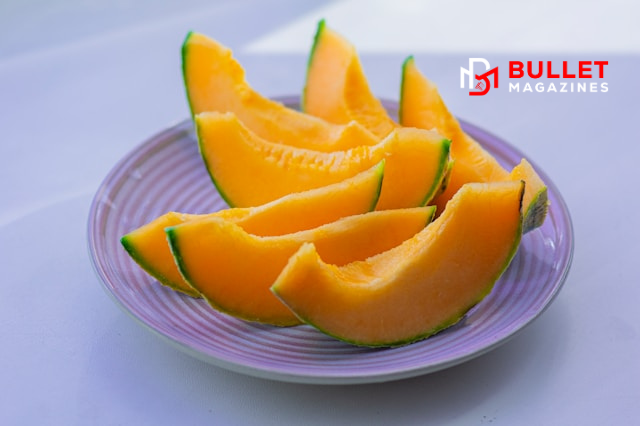The canary melon, a tantalizing fruit with a sunshine-yellow exterior, is a culinary gem waiting to be explored. This article dives into the essence of the canary melon, revealing its unique taste, the allure of the golden canary variety, and the multitude of health benefits it harbors. We will journey through the sensory experience of its taste and texture, uncover the nutritional treasures it holds, and provide practical advice on selecting the perfect ripe fruit. Let’s embark on this flavorful adventure to uncover the secrets of the canarymelon.
What is a Canary Melon?
The canary melon, often referred to as the Juan Canarymelon, is a type of melon characterized by its bright yellow skin and pale green to white inner flesh. Named for its resemblance in color to the canary bird, this melon is not just a feast for the eyes but also a delight to the palate. It’s part of the Cucumis melo family, originating from regions in Asia and has become popular worldwide for its refreshing flavor and versatile use in culinary dishes.
Taste and Texture: A Delightful Experience
Canarymelon taste is a harmonious blend of sweetness with subtle tangy undertones, making it a favorite among fruit lovers. The texture is distinctly crisp and juicy, providing a satisfying crunch with every bite. Its flesh is firm yet tender, offering a refreshing reprieve from the summer heat. When perfectly ripe, the canarymelon delivers a taste experience that is both invigorating and soothing.
Golden Canary Melon: A Special Variety
The golden canary melon, a variant of the traditional canarymelon, stands out for its deeper yellow hue and somewhat sweeter taste. This variety, also known as the Juan Canary melon, is prized for its aromatic and flavorful profile, which makes it a sought-after delicacy in fruit markets around the globe. The golden canarymelon encapsulates the essence of summer with its vibrant color and luscious flavor.
Health Benefits: More Than Just a Sweet Treat
Delving into the canary melon benefits, it’s evident that this fruit is a powerhouse of nutrients. It is rich in vitamin C and vitamin A, offering antioxidant properties that enhance immune function and promote healthy skin. Additionally, its high water content makes it an excellent choice for hydration, while its fiber content supports digestive health. Incorporating canarymelon into your diet not only satisfies your sweet tooth but also contributes to your overall well-being.
Nutritional Profile: Understanding What You Eat
Analyzing canary melon nutrition reveals why it is such a valued addition to a healthy diet. Low in calories yet abundant in essential nutrients, a serving of canarymelon provides a significant amount of the daily recommended intake of vitamins and minerals. It is particularly notable for its low canary melon calories count, making it an ideal choice for weight management. The melon is also a good source of potassium and B vitamins, which are vital for maintaining heart health and energy levels.
Ripe and Ready: How to Tell If a Canary Melon is Ready to Eat
Determining when a canary melon is ripe is crucial for enjoying its optimal flavor. A ripe canarymelon emits a sweet, fragrant aroma and yields slightly under gentle pressure, particularly at the blossom end. The skin should be uniformly yellow without any green patches, indicating it’s ready to be savored. Understanding these cues ensures that you can enjoy the canary melon ripe and at its best.
FAQs:
Q: How should I store canary melon once it’s cut?
A: Store cut canarymelon in an airtight container in the refrigerator to keep it fresh for up to five days.
Q: Can you cook with canary melon?
A: Yes, canarymelon can be used in cooking, especially in cold dishes like salads or desserts, enhancing them with its sweet flavor.
Q: Are there any allergens in canary melon?
A: Canarymelon is generally allergen-free, but individuals with specific fruit allergies should consult with a healthcare provider.
Q: How do you know if a canary melon is bad?
A: A spoiled canarymelon will have soft spots, an off odor, and possibly mold on the surface. Avoid melons with these signs.
Q: Is canary melon suitable for a low-carb diet?
A: Yes, due to its low calorie and carbohydrate content, canarymelon is suitable for low-carb diets.
Conclusion:
The canary melon is a fruit that offers more than just a delightful taste; it brings a spectrum of nutritional benefits and culinary versatility to the table. Its distinctive flavor and health advantages make it a worthy addition to any diet. Whether you’re enjoying the succulent sweetness of a golden canary melon or savoring the hydrating burst of a ripe one, the can


